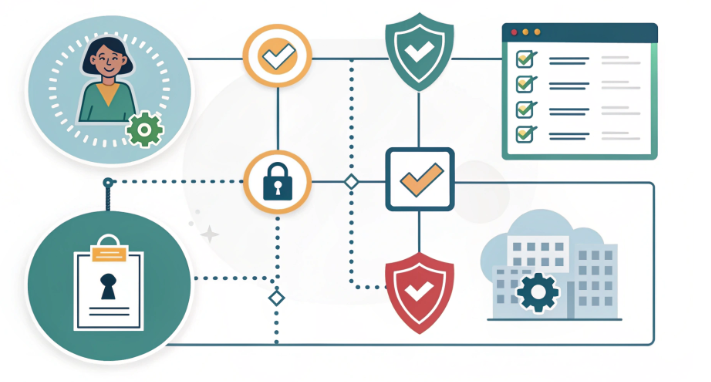Account Security Hardening Solutions for Hosting Professionals

In today’s interconnected digital landscape, securing your accounts is no longer optional—it’s a necessity. Threats such as phishing, brute force attacks, and data breaches are becoming more sophisticated, making account security a critical component of hosting and colocation environments. Whether you are managing hostingsample word for a business or personal use, hardening your security can significantly reduce vulnerabilities.
Understanding Modern Account Security Threats
Before implementing solutions, it’s essential to understand the threats targeting account security. Here are some of the most common challenges faced by hosting professionals:
- Weak Passwords: Many users still rely on simple, easily guessed passwords, leaving accounts vulnerable.
- Phishing Attacks: Cybercriminals often use fraudulent emails or websites to trick users into revealing sensitive information.
- Brute Force Attacks: Automated tools can attempt millions of password combinations to gain unauthorized access.
- Data Breaches: Leaked credentials from third-party platforms can expose your account to attacks.
Comprehensive Solutions to Harden Account Security
To defend against these threats, consider implementing the following strategies. These steps are tailored for hosting and colocation environments, where secure access is paramount.
-
Use Strong, Unique Passwords
Creating robust passwords is the first line of defense. Avoid dictionary words, and use a combination of uppercase letters, lowercase letters, numbers, and symbols. Employing a password manager can help generate and store unique credentials for each account.
-
Enable Multi-Factor Authentication (MFA)
MFA adds an extra layer of security by requiring a second form of verification, such as a one-time code sent to your phone or authentication app. This significantly reduces the risk of unauthorized access, even if passwords are compromised.
-
Implement Login Attempt Limits
Configuring your server to lock accounts after a specific number of failed login attempts can prevent brute force attacks. Additionally, monitoring login patterns can help identify suspicious behavior early.
-
Regularly Update Passwords
Encourage or enforce password changes at regular intervals. Ensure that users cannot reuse old passwords, as this reduces the effectiveness of password rotation policies.
-
Educate Users Against Phishing
Provide training to recognize phishing emails, fake login pages, and other social engineering tactics. Users who are aware of these risks are less likely to fall victim to such attacks.
-
Encrypt Sensitive Data
Ensure that all sensitive information, such as account credentials and server data, is encrypted both in transit and at rest. Encryption adds a critical layer of security that protects data even if it’s intercepted.
-
Use VPNs and IP Whitelisting
Restrict account and server access to specific IP ranges or through a secure VPN. This minimizes exposure to unauthorized users and enhances security for remote connections.
-
Monitor and Audit Account Activity
Implement real-time monitoring tools to track account activity. Regularly review logs for unauthorized access attempts or unusual patterns that may indicate a breach.
Specific Recommendations for Hosting and Colocation Environments
Hosting and colocation scenarios demand heightened security measures due to the critical nature of the data and infrastructure involved. Here are tailored recommendations:
- Segregate Administrative Accounts: Use separate accounts for administrative tasks and standard operations to limit the impact of compromised credentials.
- Choose Security-Focused Providers: Opt for hosting or colocation providers that emphasize security, offering built-in account protection features and industry certifications.
- Conduct Regular Security Audits: Periodically review your server and account configurations to ensure compliance with best practices and identify potential vulnerabilities.
Real-World Implications of Account Security Breaches
Data breaches and account compromises have real-world consequences, particularly in hosting environments. For example, a compromised account could lead to unauthorized access to sensitive server data, interrupted services, or even financial losses. By proactively hardening the security, you can mitigate these risks and ensure operational continuity.
Conclusion: Take Action Today
Account security is a cornerstone of hosting and colocation environments. By implementing strong passwords, enabling MFA, encrypting data, and regularly monitoring the activity, you can significantly reduce your vulnerability to modern threats. Protect your hosting environment by taking these critical steps now.

